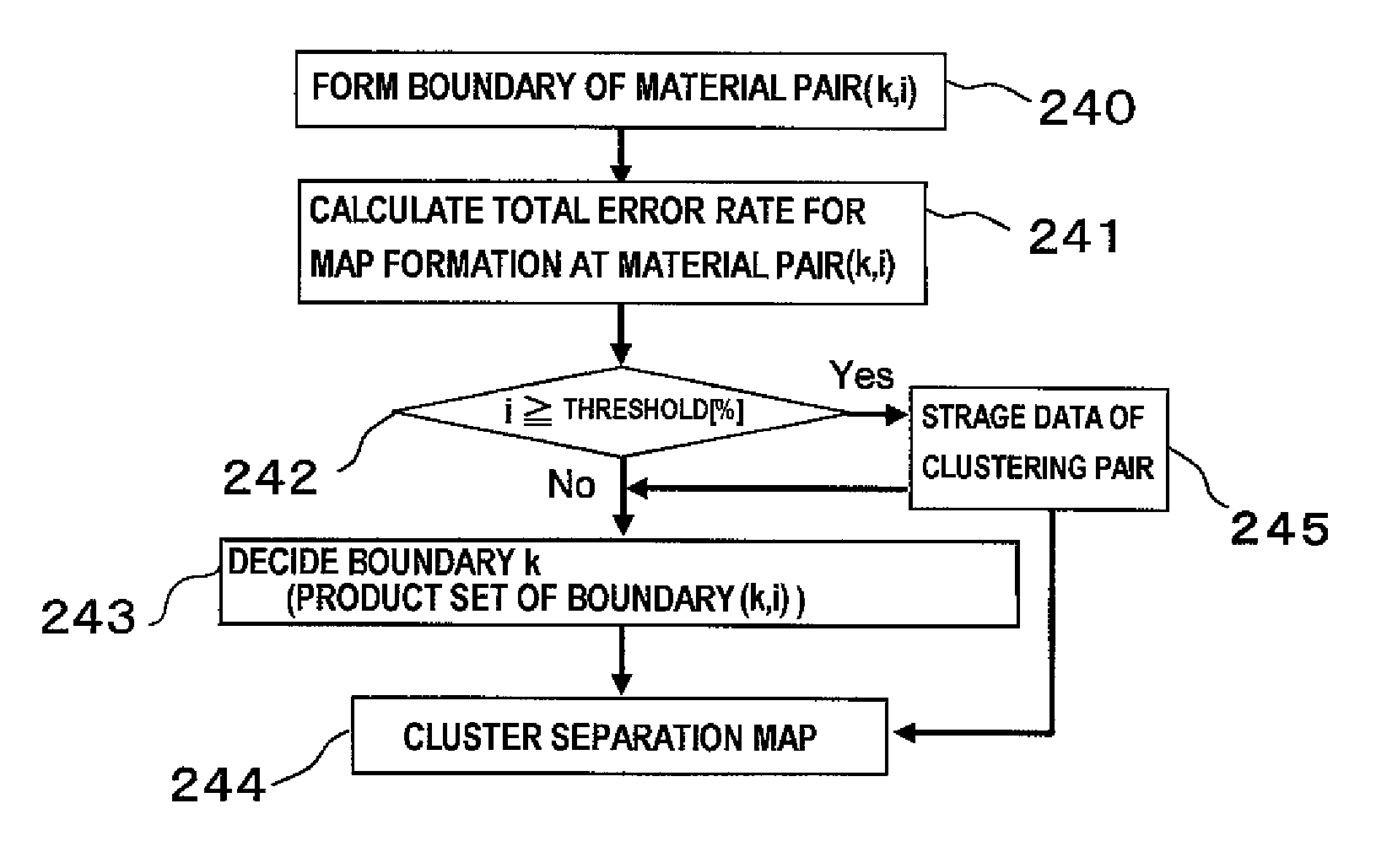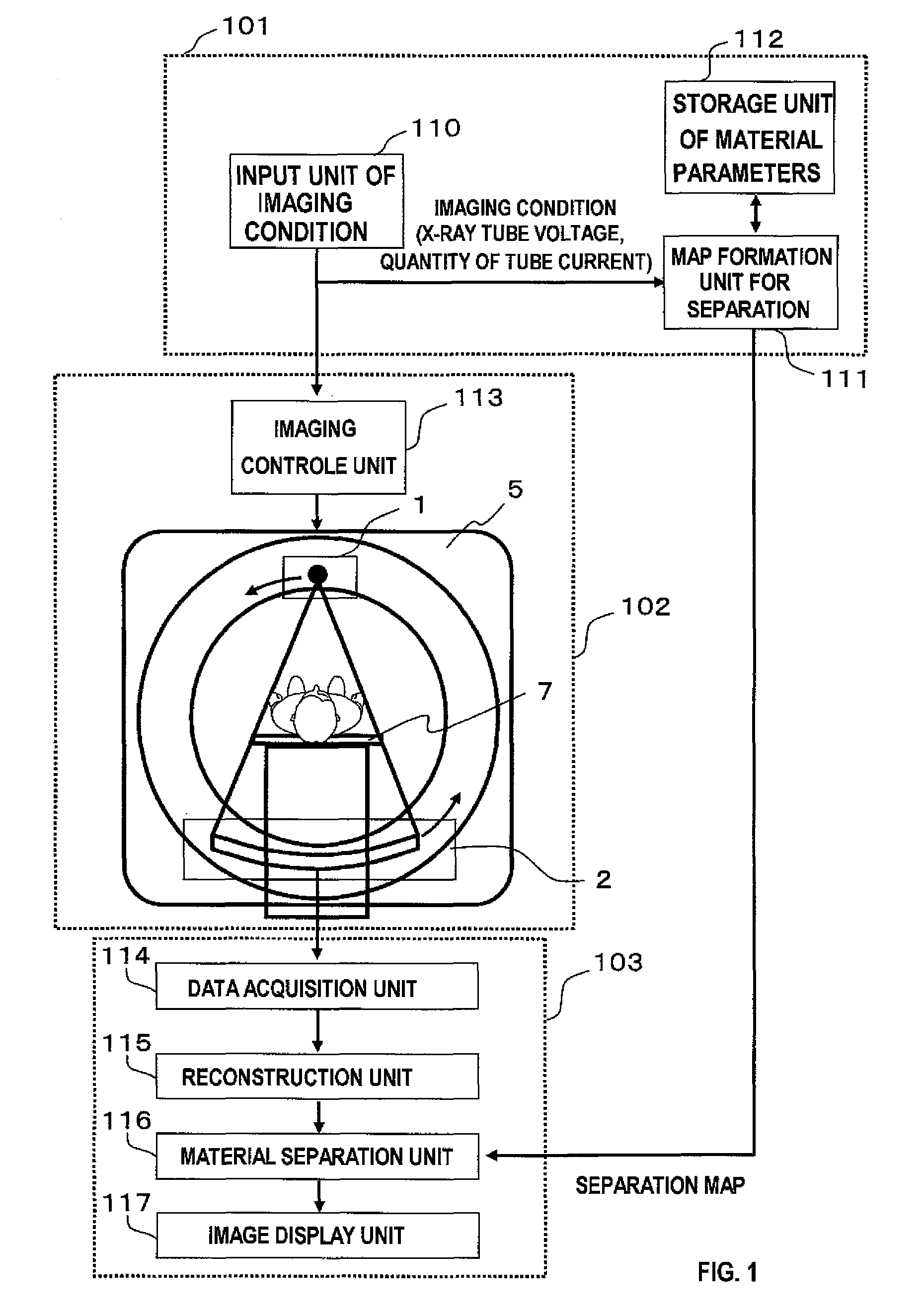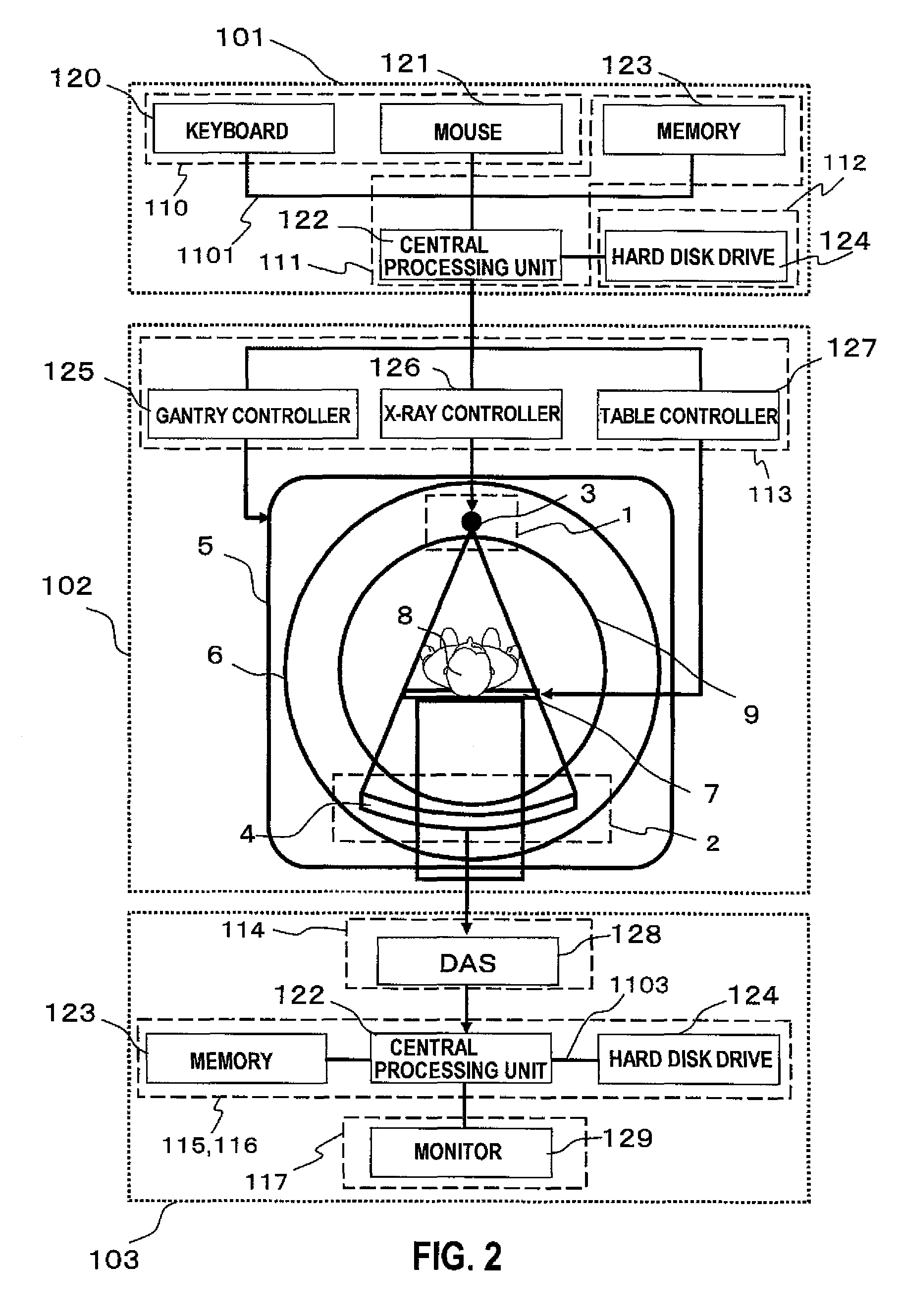X ray CT system
a ct system and x-ray technology, applied in the field of x-ray ct system, can solve the problems of difficult to achieve such automatic separation of compositions (materials), and achieve the effect of easy setting of x-ray conditions
- Summary
- Abstract
- Description
- Claims
- Application Information
AI Technical Summary
Benefits of technology
Problems solved by technology
Method used
Image
Examples
first embodiment
[0023]A dual energy X-ray CT system according to the first embodiment will be explained. As shown by the schematic configuration of FIG. 1, the X-ray CT system incorporates an input means 101, an imaging means 102, and an image generation means 103. The input means 101 includes an input unit of imaging condition 110, a map formation unit for separation 111, and a storage unit of material parameters 112. The imaging means 102 includes an imaging control unit 113, an X-ray irradiation unit 1, an X-ray detection unit 2, a gantry 5, and an object-installation table 7. The image generation means 103 includes a data acquisition unit 114, a reconstruction unit 115, a material separation unit 116, and an image display unit 117. It is to be noted here that the input means 101 and the image generation means 103 are not necessarily merged with the X-ray CT system, and such operations may be implemented by a second device which is connected via a network.
[0024]One example of hardware configurat...
second embodiment
[0068]A dual energy X-ray CT system according to a second embodiment will be explained. The configuration of the X-ray CT system according to the present embodiment is the same as the X-ray CT system of the first embodiment, but an operation for forming the map for separation by the map formation unit for separation 111 is different from that of the first embodiment.
[0069]The first embodiment is directed to a configuration where the map formation unit for separation 111 forms a map for separation (e.g., FIG. 5) that is divided into N areas respectively corresponding to N materials, when the operator designates via the input unit of imaging condition 110, N materials as the areas to be separated. However, if there are materials having similar distribution of X-ray attenuation coefficient μ(x, y), or the like, there is a possibility that the accuracy for separating two materials is low even though the formed map for separation is used. In such a case above, it is not possible to enhan...
third embodiment
[0081]The dual energy X-ray CT system according to a third embodiment enables an imaging under an optimum X-ray condition. In the CT system according to the third embodiment, it is not necessary for an operator to input all of the imaging condition such as the separated target region, material, and dose, and only a partial condition is inputted. As for the part of the imaging condition that is not designated by the operator, the X-ray CT system generates multiple candidate values different in conditions variously in types, and forms a map for separation for each candidate value to obtain separation accuracy. Accordingly, while satisfying the imaging condition desired by the operator, it is possible to calculate an optimum X-ray condition having the highest degree of separation accuracy. In the real imaging mode, imaging can be performed under the optimum X-ray condition being calculated.
[0082]A structure of the dual energy X-ray CT system according to the third embodiment is similar...
PUM
 Login to View More
Login to View More Abstract
Description
Claims
Application Information
 Login to View More
Login to View More - R&D
- Intellectual Property
- Life Sciences
- Materials
- Tech Scout
- Unparalleled Data Quality
- Higher Quality Content
- 60% Fewer Hallucinations
Browse by: Latest US Patents, China's latest patents, Technical Efficacy Thesaurus, Application Domain, Technology Topic, Popular Technical Reports.
© 2025 PatSnap. All rights reserved.Legal|Privacy policy|Modern Slavery Act Transparency Statement|Sitemap|About US| Contact US: help@patsnap.com



